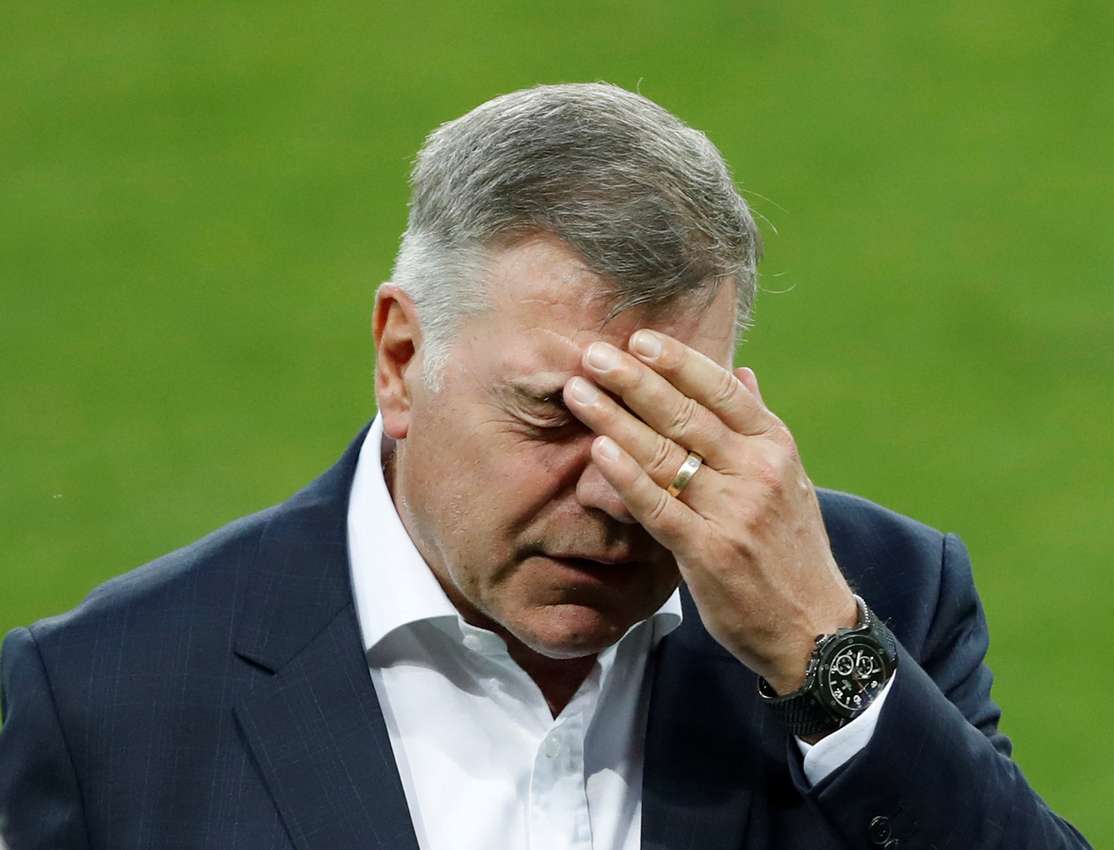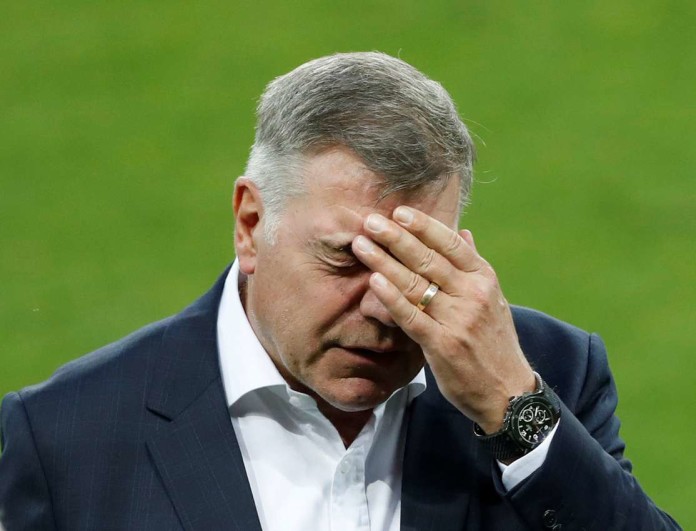LONDON – As Sam Allardyce beat a shame-faced retreat from Wembley after being forced out as England manager, his place as a punchline in the national team’s ever-expanding hall of shame was already etched in stone.
Allardyce had coveted the England post for decades and proudly hailed his appointment in July as an overdue chance to seize the spotlight after being denied a crack at one of the Premier League’s top clubs.
Yet like so many who came before him, the 61-year-old has discovered why managing England has been described as the ‘impossible job’, a ‘poisoned chalice’ and now, undeniably, a laughing stock after his departure only one match and 67 days into a dream job that quickly turned into a nightmare.
Given the unrealistic expectations attached to the England job, it’s hardly surprising few get to leave with their heads held high.
But something about the experience of pulling on a tracksuit with the Three Lions badge seems to induce astonishing lapses in judgement from England’s managers.
From Steve McClaren’s wally with the brolly denouement to Sven Goran Eriksson’s daliance with a fake sheikh via Glenn Hoddle’s extraordinary views of reincarnation, there is rarely a dull moment for those who chronicle the men in the England hot-seat.
Even by those farcical standards, Allardyce’s astonishingly rapid fall from grace seems especially fitting in its self-inflicted arrogance and needless naivety.
Surveying the damage done to a once prestigious post, former England and Manchester United defender Rio Ferdinand summed up just how pitiful the national team now looks in the eyes of the world.
“The rest of the football community around the world will be laughing at us. The England role has become comical,” Ferdinand said.
“This was a man who was passionate about getting the job. He forced the FA to act.
“Naivety seems to be the word coming up. It’s disappointing for English football.” Allardyce had been appointed to replace Roy Hodgson after England’s miserable Euro 2016 campaign ended with a shock last-16 exit against minnows Iceland.
Hodgson, a decent man whose only crime was being over-promoted, departed in abject misery after being forced to endure a painful grilling in his exit press conference.
Somehow, Allardyce found an even more demeaning way to go down in flames.
Despite the warning of Eriksson’s brush with undercover reporters, a tawdry tale that almost cost the Swede the England job in 2006, Allardyce still agreed to exchange gossip and trade secrets with a group of men he didn’t know in a London hotel only days after taking charge.
That those men were actually undercover reporters posing as Far East businessmen can’t even have come as that much of a surprise to Allardyce given his own past experience of a secret television investigation that led him to be accused of taking bungs to facilitate transfers – a charge he was eventually cleared of.
Asked by the reporters if it would be a problem for their fictitious agency to get involved in third-party ownership through funding football transfers, which is banned under FIFA rules, Allardyce said he knew of certain agents who were “doing it all the time” and added: “You can still get around it. I mean obviously the big money’s here.” He compounded his error by crassly referring to Hodgson as “Woy”, mimicking his speech impediment, and said the FA had “stupidly spent 870 million pounds” rebuilding Wembley, while also complaining that Prince William, the FA president, had not attended last week’s Euro 2020 launch event in London.
Allardyce criticised Hodgson’s approach at Euro 2016, saying he was “too indecisive” and “hasn’t got the personality for public speaking”.
Still not finished, he poured scorn on England’s failure at the tournament by saying their players have a “psychological barrier” and “can’t cope”.
It was all too much for the image conscious FA, who summoned Allardyce down to London from his home in Bolton in north-west England before wielding the axe.
Mutual consent was the FA’s agreed phrasing, but Allardyce’s admission that he was “deeply disappointed” told the real story.
England Under-21 coach Gareth Southgate has agreed to take charge of the senior team’s next four matches.
But for the second time in three months, the Football Association have to embark on a search for a new man to fill a position that increasingly seems like the very last job any self-respecting coach would want.







